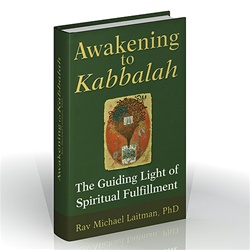Look How Much Our World Is in Crisis Today
An overview of the state of humanity in our time yields a sullen picture, one that could aptly be named “a crisis.”1 It seems that in all areas of life—personal, familial, national, and international—we are faced with escalating situations to which there are no solutions in sight.
Depression is soaring, followed by an increasing escape to drugs and alcohol. The family unit is disintegrating; domestic violence, alienation, and divorce are perpetually increasing; social polarization widens; and corruption in the government has become daily news. War and terrorism have become globally commonplace; social decline, natural disasters—all those and more have become a daily reality to many.
Thus, uncertainty and insecurity increase. While past leaders could make long-term plans for humankind and determine their short-term actions accordingly, today they cannot outline clear policies for the continuation of our existence.
Are Today’s Enormous Crises Unsolvable?
In and of themselves, crises are not negative. Humanity has been in crises before; and every time they have produced more highly evolved states. A crisis in one field leads to the rising of new fields. But today the situation seems essentially different: collapse is happening in almost every field of life and almost simultaneously.
This escalating crisis is even more perplexing in view of the achievements of science and technology, which have provided us the means to make our lives much more comfortable and easier than ever before. It seems that time and space have shrunk and that the world is truly becoming a small village.
Theoretically, science should have provided us a sheltered world, one where we could live peacefully and safely without a care in the world. Many thinkers, supporting modernization, were certain that industrialization and progress would place humanity on the brink of a secure and bountiful era.
Why the Increasingly Egotistic Use of Knowledge Makes Life More Difficult for Everyone
If humankind had only wanted, the existential hardships of many could vanish. We could provide for the entire world and make certain that no person would be troubled struggling for survival. In such a utopia, we would establish world peace and bring the whole of humankind to prosperity and affluence.
Regrettably, this is not the case, in part because of how we use our knowledge. Since ancient times, sages withheld knowledge from unworthy people. They feared that people would abuse the knowledge of natural forces. The knowledge in itself is not harmful, but is often used detrimentally because the fundamental priority of human nature is to use knowledge for egoistic purposes. This approach compelled sages to be very cautious when accepting disciples, since, as possessors of this knowledge, the responsibility for conveying it lay on their shoulders.
In time, those in possession of this knowledge began to deteriorate as well. They started to sell the wisdom in return for the satisfaction of their material desires for honor and power. The increasing material temptations prompted the ancient sages to relinquish settling for mere sustenance while turning their entire efforts to research Creation. As their egos grew, they began to crave both research and material pleasures. This decline of the sages allowed the knowledge to be disseminated among undeveloped people who wished only to satisfy their desires for money, power, and domination.
Although this process has continued throughout history, the Renaissance and the industrial revolution mark a turning point where manifestations of an increasing egoism grew boda- cious. Since that time, the picture has greatly worsened. Today the arms industry has become one of the leading industries in the world, and firearms have become weapons of mass destruction.
The Need to Correct Human Nature to Solve Today’s Crises
Alongside the advancement of science and technology, there exists an inner growth within each person and in humankind as a whole. Nature pushes us to use everything around us for personal gain, even if we are unaware of it. In fact, it is the growing egoistic search for self-fulfillment at the expense of others that causes us to misuse the achievements of science and technology.
There is a dichotomy between the advancement of knowledge and the moral standard of the people using it. While we acquire more and more knowledge and consequently ever greater power, the natural development of the ego leads directly to moral decline. In light of the above, the ancient sages’ inclination to conceal the knowledge from the people becomes obvious; these conditions and the limitations were only placed for our own well-being.
We therefore see that human nature and its inherent egoism is the reason for the polarity between scientific evolution and personal and collective happiness. The intensification of the ego is the root of escalating personal and global crises. Thus, knowledge and progress will not help humanity, only bring it to an extreme where both evils (the growth of the ego to a colossal magnitude and the accessibility of weapons of mass destruction) will unite.
Having realized the negative potential that it holds, it would be gross naïveté to condition humankind’s well-being on further scientific advancement. Instead, we must turn all our energy to seek a way to mend humankind’s nature. It is safe to say that a breakthrough in this field is virtually humankind’s only hope.
 “Warning: Do You Recognize the Root Cause of Today’s Biggest Crises?” is based on the book, Awakening to Kabbalah: The Guiding Light of Spiritual Fulfillment by Dr. Michael Laitman.
“Warning: Do You Recognize the Root Cause of Today’s Biggest Crises?” is based on the book, Awakening to Kabbalah: The Guiding Light of Spiritual Fulfillment by Dr. Michael Laitman.
![]() Start Your Kabbalah Studies Here: Take a Free Kabbalah Course »
Start Your Kabbalah Studies Here: Take a Free Kabbalah Course »

